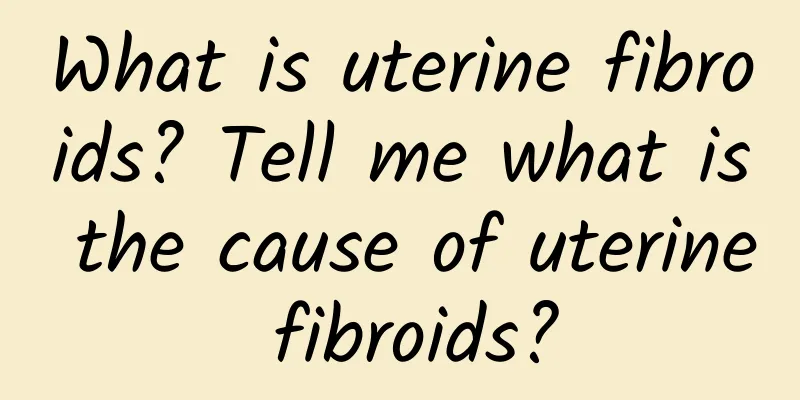Treatment principles for functional uterine bleeding

|
The treatment principles for functional uterine bleeding include medication, surgery, and lifestyle adjustments. The specific method should be selected according to the cause and severity of symptoms. Functional uterine bleeding is common in women with abnormal menstrual cycles and may be related to hormone imbalance, endometrial abnormalities, or systemic diseases. 1. Drug treatment is the first choice for functional uterine bleeding and is suitable for patients with mild to moderate symptoms. Hormonal drugs such as oral contraceptives, progesterone and estrogen are often used to regulate the menstrual cycle and reduce bleeding. Non-hormonal drugs such as tranexamic acid and ibuprofen can also be used to control bleeding and relieve pain. For patients with abnormal hormone levels, doctors may prescribe gonadotropin-releasing hormone analogs to help restore normal hormone balance. 2. Surgical treatment is suitable for patients who are ineffective with drug treatment or have severe bleeding. Endometrial resection is a minimally invasive surgery that reduces bleeding by removing part or all of the endometrium. Uterine artery embolization controls bleeding by blocking blood flow in the uterine artery and is suitable for patients who do not want to have their uterus removed. Hysterectomy is the last choice and is suitable for patients with severe bleeding and no desire to have children. 3. Lifestyle adjustment plays an important role in the prevention and auxiliary treatment of functional uterine bleeding. Maintaining a healthy weight and avoiding excessive obesity or weight loss can help maintain hormone balance. Regular exercise such as yoga, walking and swimming can improve blood circulation and relieve symptoms. In terms of diet, increasing foods rich in iron, vitamin C and protein, such as lean meat, spinach and citrus fruits, can help prevent anemia and promote physical recovery. The treatment of functional uterine bleeding requires a personalized plan based on individual conditions. Only by combining drug therapy, surgical treatment and lifestyle adjustments can symptoms be effectively controlled and the quality of life be improved. |
<<: What medicine can cure endometritis and pelvic inflammatory disease faster?
>>: How can I get rid of the right ovarian cyst? What medicine should I take?
Recommend
A nutritional comparison between black sesame and white sesame: black sesame has the strongest effect on iron and calcium!
Sesame is an indispensable health tonic. Girls lo...
What can't you eat after a miscarriage? How to adjust your diet after a miscarriage?
What should you not eat after a miscarriage? The ...
What are the symptoms of vaginitis
What are the symptoms of vaginitis? Vaginitis is ...
Eat more fruits and vegetables to lose weight. Is it the right way to eat fruits? Which fruit should you choose, high GI or low GI?
Most people know that if you want to lose weight,...
Does uterine fibroids affect pregnancy? What are the effects of uterine fibroids?
Does uterine fibroids affect pregnancy? What are ...
Treatment of chronic cervicitis should start with daily care
Chronic diseases generally cannot be cured immedi...
What are the factors that induce vaginitis?
What are the factors that induce vaginitis? Which...
What causes uterine fibroids? Are uterine fibroids benign tumors?
Although uterine fibroids are a benign tumor, man...
Will the odor of vaginal discharge go away on its own?
The patient's leucorrhea has an odor, but the...
How is bacterial vaginosis diagnosed?
Due to the special physiological structure of wom...
You must understand the reasons for women's irregular menstruation!
What are the causes of irregular menstruation in ...
There are three main types of ovarian cysts.
Ovarian cysts are not as simple as you think. The...
Be careful not to cause menstrual irregularities due to excessive dieting
Irregular menstruation is something most women ha...
Patients with ectopic pregnancy can take Chinese medicine after surgery
Traditional Chinese medicine and Chinese herbal m...
Threatened abortion specialist hospital
Everyone is very aware of the seriousness of thre...









